8 things people do to stop being ‘hangry’: poll
The average American will experience symptoms of “hanger” almost every day of their lives, new research suggests.
A recent survey of 2,000 U.S. adults found three-fourths (74%) admit their hunger gets the best of them five times a week, culminating in an astounding 21,000+ “hangry” outbursts over the course of their lifetimes.
People most commonly experience “hanger” as feelings of anger, grumpiness, impatience and fatigue. Regionally, the Northeast is the “hangriest” of all, with 46% saying they “always” or “often” experience this feeling. Countrywide, men are less likely to be “hangry” than women, with 32% saying they have never experienced “hanger,” as opposed to only 20% of women.
Conducted by OnePoll on behalf of Farm Rich, the survey also revealed the most common reasons for people’s hunger-related irritability as mealtime delays (44%), a busy work schedule (37%) – a number that rose to 44% amongst millennials – never knowing what to cook (32%) and not having time to grocery shop (29%).

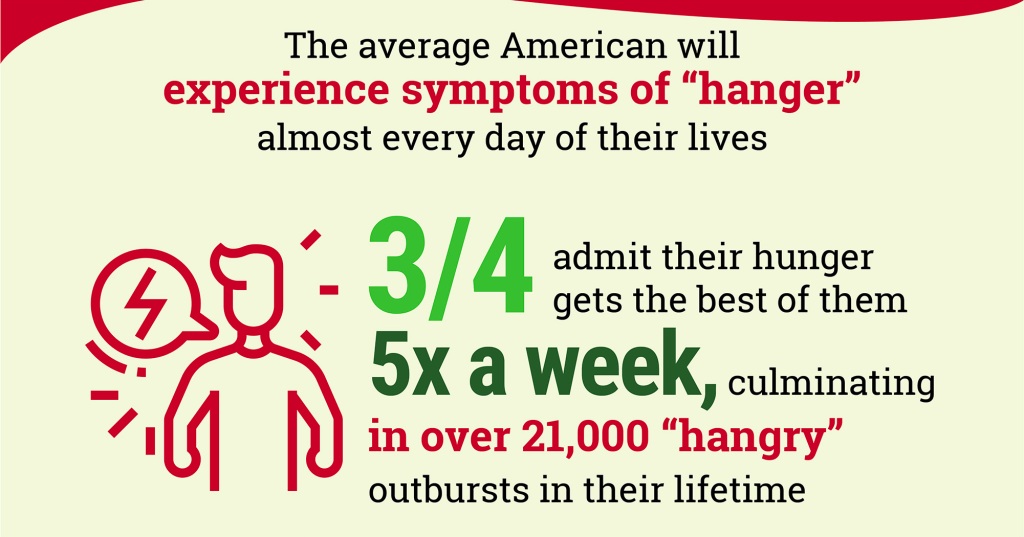
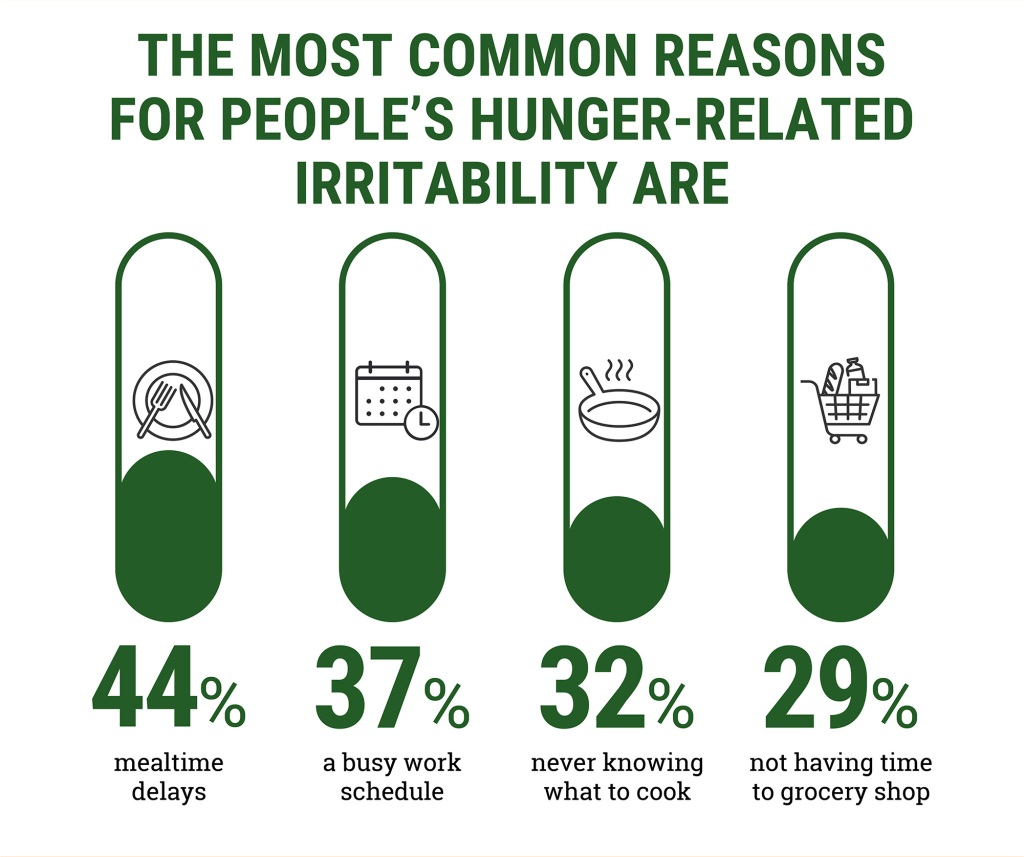
“Hanger” is most frequently experienced at home (41%), but people’s crankiness seems to follow them to work (35%), when they’re shopping (34%), while running errands (33%) and traveling (33%).
Perhaps to no one’s surprise, adults with small kids are the “hangriest” of all — 42% of people with kids ages 0 to 4 identify as frequently “hangry.” Overall, 39% of parents polled admitted to chowing down on their kids’ snacks to help ease their hunger pangs. And nearly seven in 10 (68%) parents are willing to let their kids eat whatever they want if it will stop them from having a “hangry” tantrum.
Approaching someone who’s hungry and irritable? Here’s what you need to know: avoid talking too much (42%) and please don’t try to remove someone’s plate before they’re finished (38%).
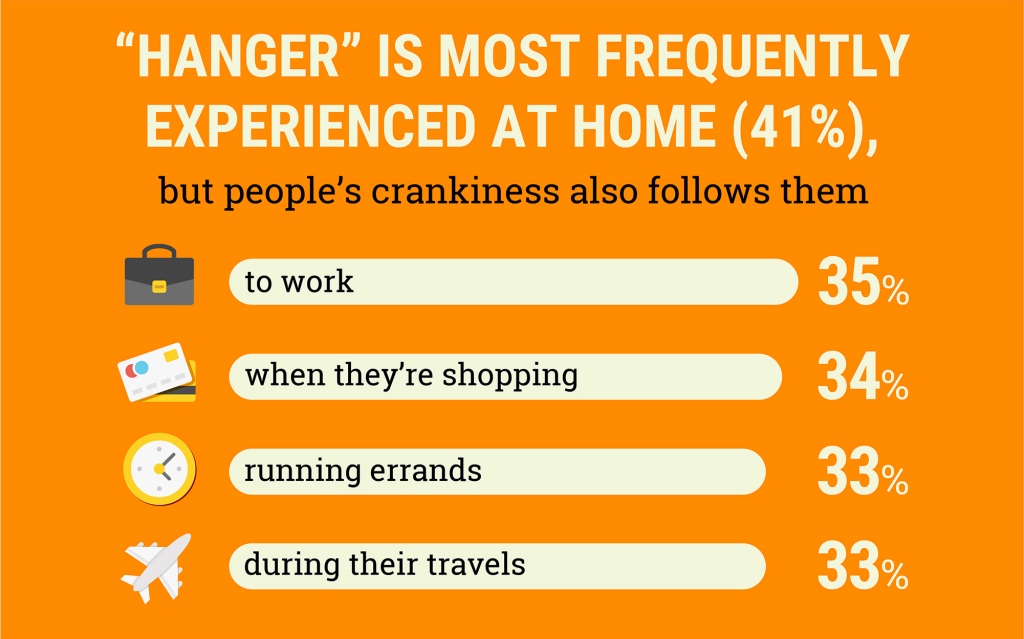
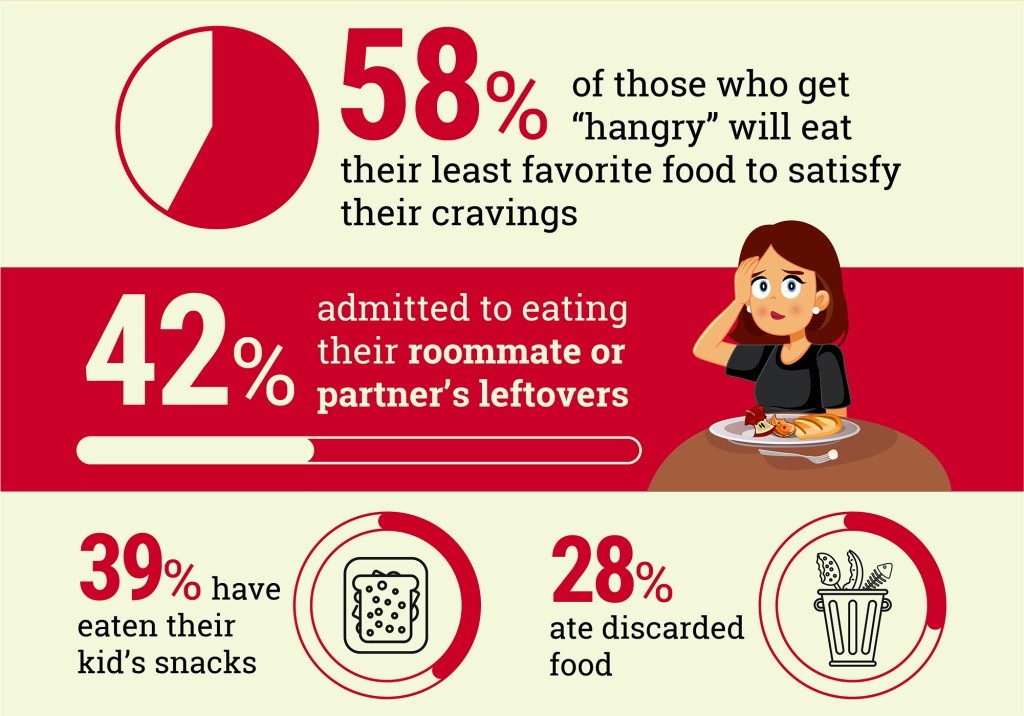

Fifty-eight percent of those who are “food grumpy” will even eat their least favorite food just to satisfy their cravings and 42% admitted to faux pas like eating leftovers they knew their significant other or roommate was saving for themselves. And (in true George Costanza style), 28% shockingly shared they’ve eaten food that’s been thrown out off the top of the garbage can, while 27% copped to eating expired food.
Meghan Ozamiz, director of marketing for Farm Rich, says the new national survey seemed to really strike a chord with its respondents.
“There are many reasons our moods can be affected by food and this poll shows us a lot of them,” said Ozamiz. “Also, we saw that snacks remain important, with more than half the respondents (56%) saying they try to always keep snacks on hand or fuel up with small meals throughout the day (55%).”
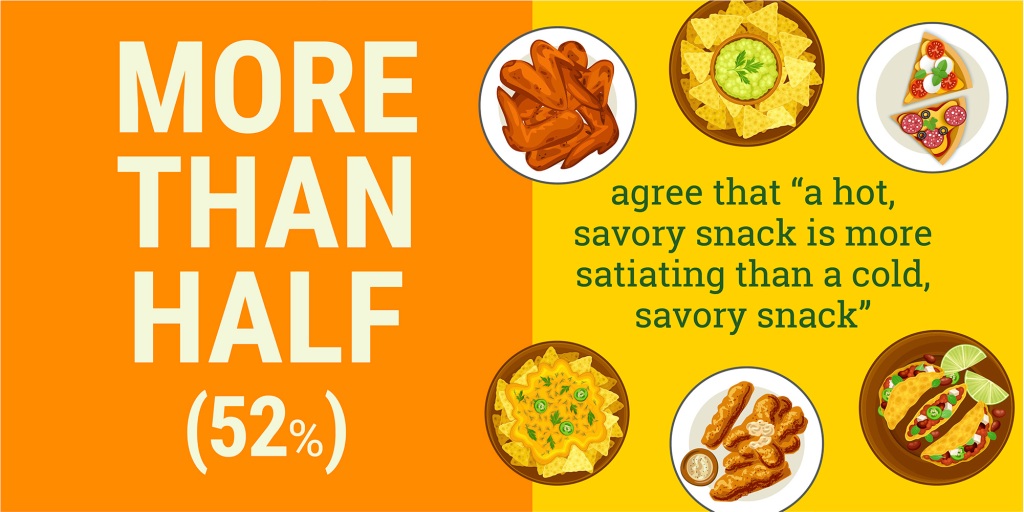
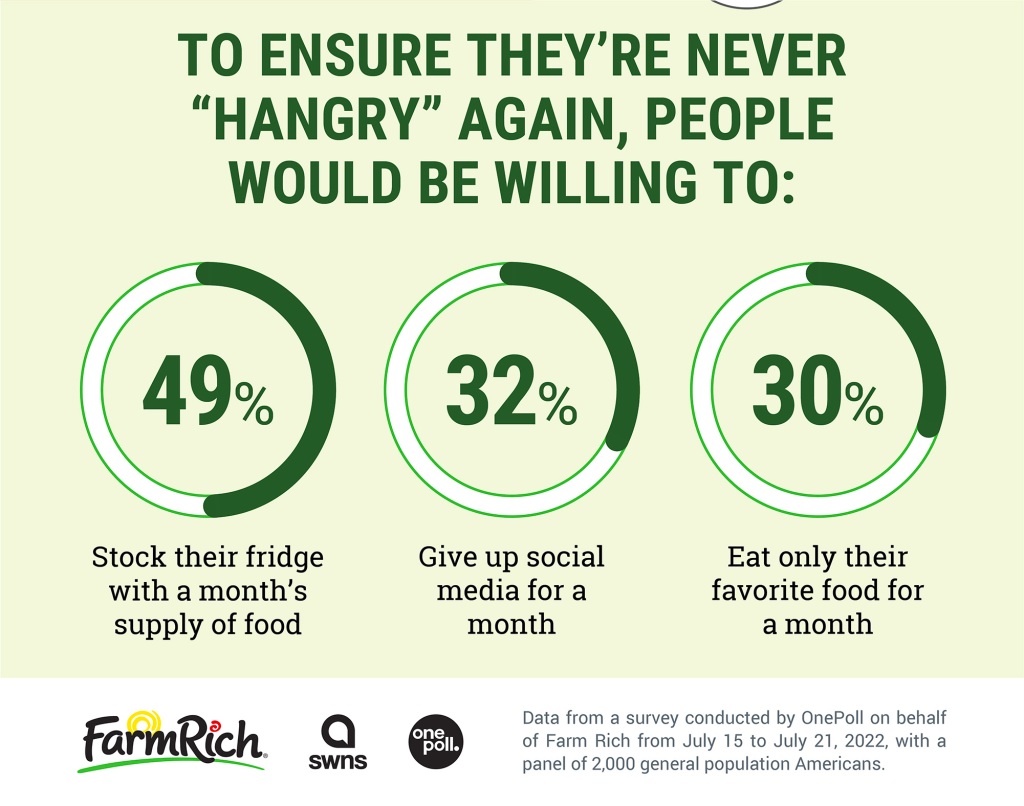

When it comes to hot snacks versus cold, the results are about even. Slightly more than half of those surveyed (52%) say “a hot, savory snack is more satiating than a cold one.”
There’s also a science behind hunger-related mood swings that are connected to our blood sugar levels. Snacks like fruit, dried fruit, nuts and nut butters require minimal prep and can help restore one’s emotional balance while managing blood sugar levels.
If you’re having trouble getting over “the hump” on Wednesdays, hunger may be to blame – a third (33%) of those who get irritable say they’re likely to experience this emotion mid-week. The cause? More than half of the adults surveyed (53%) attribute it to skipping meals, with not eating on time being another big culprit (48%).
Not surprisingly, grocery shopping while “hangry” often results in impulse buys and big checkout receipts. The majority of those surveyed copped to spending $51 to $100 more during a trip to the store. And among the top impulse food buys are the 4Cs: cheese, chips, chocolate and cookies.
Read the full article Here


